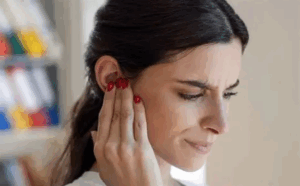With the recent announcement of an update allowing Apple AirPods Pro (2nd Generation) to function as over-the-counter hearing devices, many are asking: Could these sleek earbuds replace traditional hearing aids? Let’s dive in.
Can You Use AirPods as Hearing Aids?
Apple’s new Hearing Health feature allows AirPods Pro 2 to estimate hearing levels through a self-test. This could be helpful for those with mild to moderate sensorineural hearing loss, but it has limitations. While Apple AirPods might assist with certain types of hearing loss, they may miss other treatable conditions, such as ear canal obstructions, eardrum issues, or nerve-related problems that hearing aids would typically address.
Moreover, the hearing aids Apple offers through AirPods aren’t a perfect substitute for professional testing. A hearing specialist, like an audiologist, can identify the root causes of hearing loss and provide custom solutions that AirPods alone cannot match.
Key Features of the Hearing Health Update
The AirPods Pro 2 update—available this fall—introduces features like Personalized Spatial Audio and Adaptive Transparency. These tools can enhance listening experiences for those with minor hearing difficulties. If you’re one of the many who struggle to hear the TV or conversations over the phone, this feature could temporarily bridge the gap until a more comprehensive hearing aid is necessary.
Think of using AirPods as hearing aids like picking up reading glasses at the grocery store: helpful for specific tasks but not a long-term solution. For those with more severe hearing loss, prescriptive hearing aids will still provide better support.
Hearing Aids vs. Apple AirPods: What’s the Difference?
While Apple AirPods may offer some relief, there are notable differences between using AirPods as hearing aids and traditional hearing aids:
- Custom Fitting: AirPods are not custom-fitted to your ear canal, which can impact sound quality. Prescriptive hearing aids, on the other hand, are tailored to your unique ear shape and hearing needs, ensuring a more precise and consistent hearing experience.
- Power Limitations: The Hearing Health feature in AirPods is suitable only for mild to moderate hearing loss. For severe to profound hearing impairments, traditional hearing aids provide much-needed amplification that AirPods simply cannot deliver.
- Battery Life: AirPods’ battery life (around 5.5 hours when using Spatial Audio) may not support full-day use. Prescriptive hearing aids are designed to last longer, especially for those who rely on them throughout the day.
- Social Perception: While wearing AirPods, others might assume you’re listening to music or a podcast, not engaging in conversation. Hearing aids, on the other hand, are socially accepted as medical devices, designed specifically for hearing enhancement.
Conclusion: A Complement, Not a Replacement
Apple AirPods with the new Hearing Health feature can certainly complement traditional hearing aids but are not a replacement. For mild to moderate hearing loss, they may offer an innovative, tech-savvy solution, but their limitations prevent them from fully substituting hearing aids Apple produces through trusted manufacturers.
At The Dallas Ear Institute, we recommend that anyone experiencing hearing loss consult with an audiologist to ensure they get the best device for their needs. Our experts can evaluate whether using AirPods as hearing aids would be helpful for you, or whether traditional hearing aids are the better option. We offer a range of service plans to accommodate your needs and ensure you receive the right care for long-term hearing health.

Reviewed by the board-certified ENTs doctors at Dallas Ear
Still have questions? Ask one of our ENT doctors!


